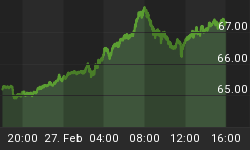Signs of a slowdown are spreading. Here in the US, despite all the happy talk about rising stock prices and falling deficits and the imminent unwinding of the Fed's debt-monetization program, today's numbers were ominous:
Producer prices post big drop, factory activity weak
(Reuters) - U.S. producer prices recorded their largest drop in three years in April as gasoline and food costs tumbled, pointing to weak inflation pressures that should give the Federal Reserve latitude to keep monetary policy very accommodative.
Separate reports on Wednesday showed an unexpected drop in U.S. factory output last month and troubling signs of weakness in manufacturing activity in New York state this month.
The Labor Department said its seasonally adjusted producer price index fell 0.7 percent last month, the biggest decline since February 2010. Wholesale prices had dropped 0.6 percent in March.
A Reuters survey of economists had forecast prices received by the nation's farms, factories and refineries dropping 0.6 percent last month.
In the 12 months through April, wholesale prices were up only 0.6 percent, the smallest increase since July last year. Prices had increased 1.1 percent in March.
Underscoring the tame inflation environment, wholesale prices excluding volatile food and energy costs nudged up 0.1 percent, the smallest increase since November.
Producer prices rose modestly in 2011 but have since been trending down. Other stats like disposable income are also flattening out, which implies that the slowdown is about more than just temporarily lower oil prices.

Now the question is whether slowing inflation turns into actual deflation. Europe is closer to this point that than the US, so not surprisingly is a little further along in softening up its citizens for even more central bank "innovation":
ECB's Visco: negative deposit rates would be effective
(Reuters) - Cutting the European Central Bank's deposit rate below zero would be an effective way to help the euro zone economy, ECB policymaker Ignazio Visco was quoted as saying on Monday, sending the euro lower.
Taking the deposit rate into negative territory would mean the ECB charging commercial banks for holding their money overnight, something ECB President Mario Draghi has said the central bank was "technically ready" to do.
Such a move could encourage banks to lend out money to the real economy rather than hold it at the ECB, though it could also have a big impact on banks' own operations and major implications for funding and bond markets.
While non-euro zone member Denmark has dabbled with negative deposit rates, the ECB would be the first major central bank to use the measure - a policy step it is considering to try to boost lending to businesses in the recession-mired euro area.
Visco said the ECB was ready to deal with possible unintended consequences of negative deposit rates.
"We all agreed in the council that we have to look with care and in that case we may reduce the deposit rate," Visco, a member of the ECB's policymaking Governing Council, told CNBC in an interview.
"We think that - and I personally think that, this is effective - the economy now is capable of taking it on board. Technically, we are equipped and ready to intervene. There may be unintended consequences - we know we may have to work on that - and we know how to work on that," he was quoted as saying.
Some Thoughts
In a deflationary environment wages can't rise, which means tax revenues stagnate or fall, which means personal and government debts get harder to cover. For the people trying to maintain power, deflation is a black hole, the ultimate nightmare.
If these guys weren't such predators you could almost feel sorry for them. On one hand, nascent housing bubbles and roaring stock markets are signaling an inflationary boom. On the other hand, stats like the above point towards a deflationary tipping point. Whatever the oligarchy does from here on out, the risk of being catastrophically wrong is both very real and growing. Like I said, you can almost feel sorry for them.















